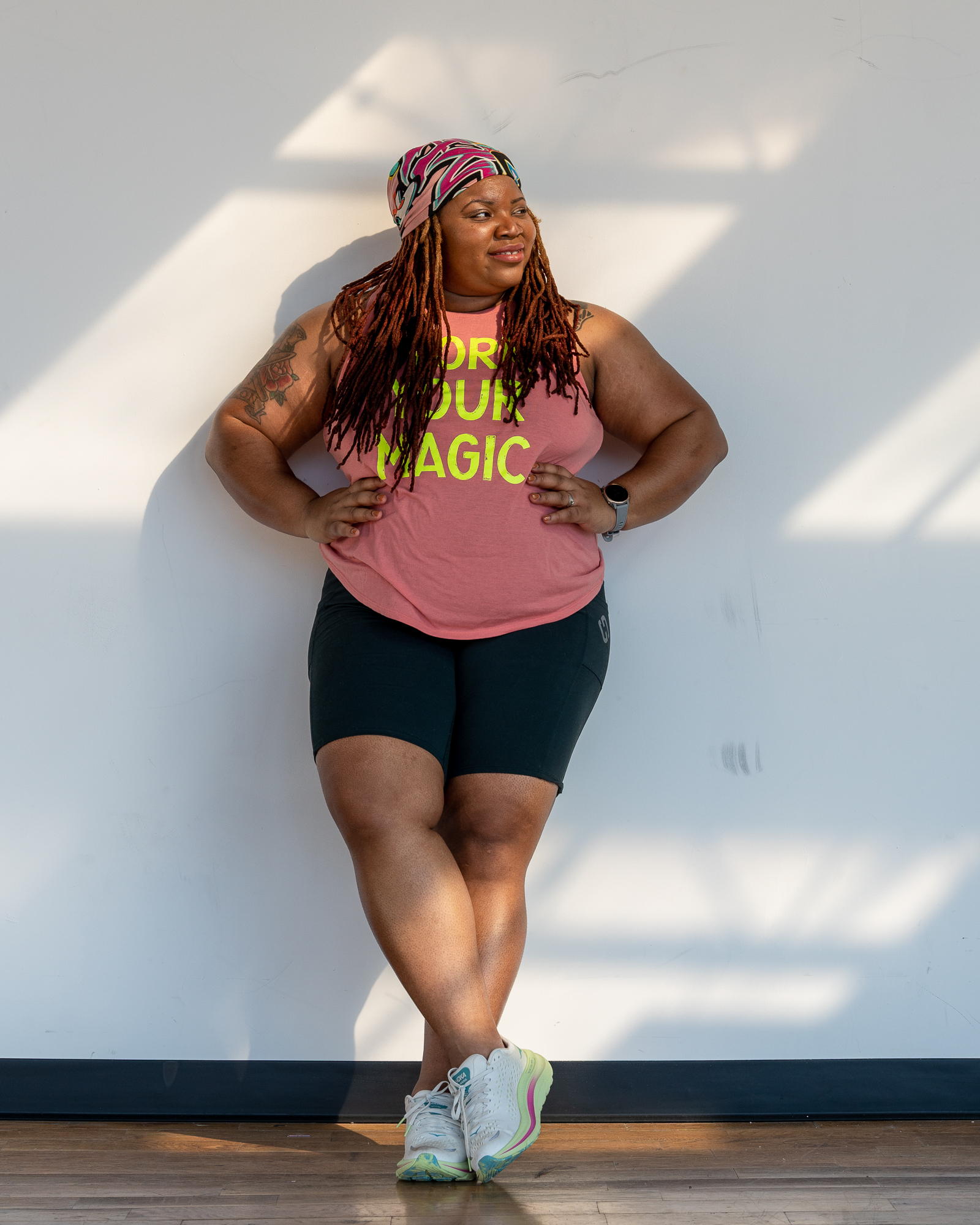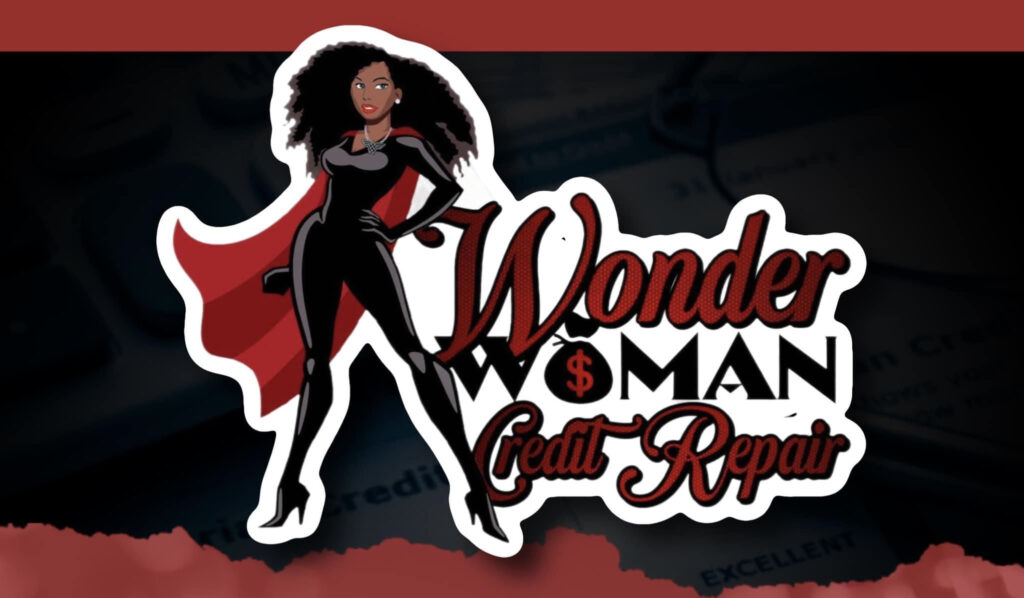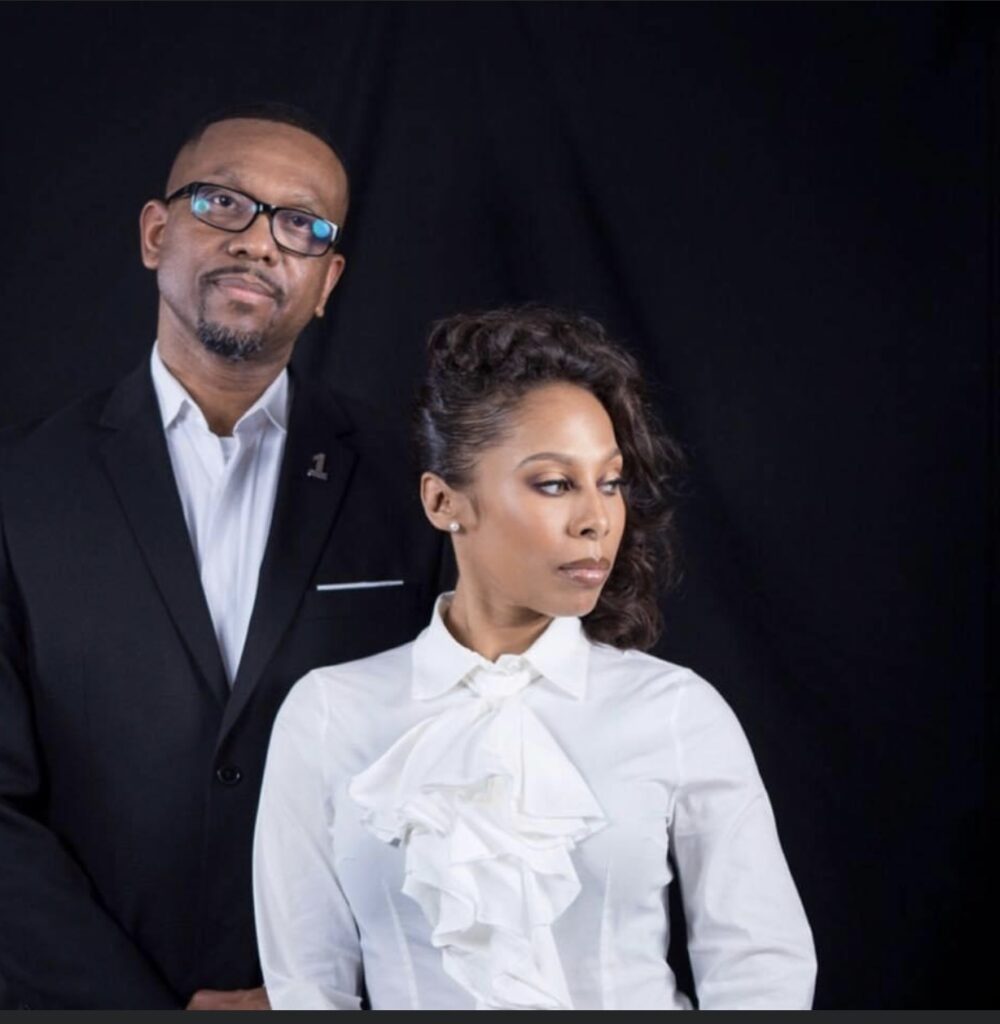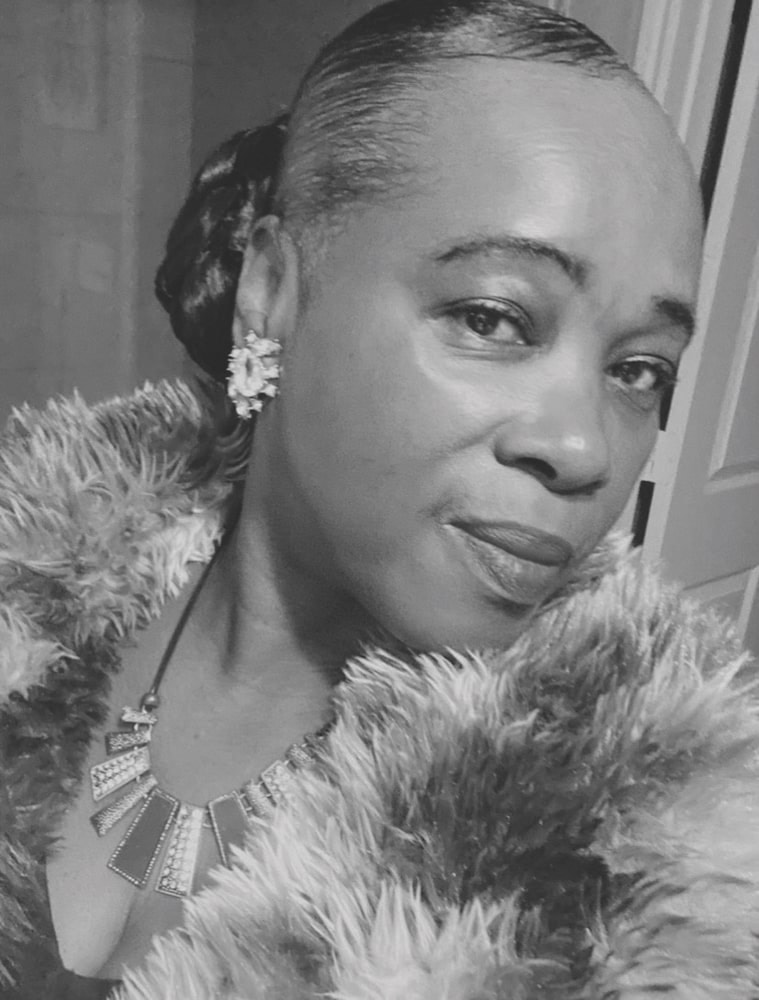Latoya is an inspirational Black Queer Woman, Multi-Sport Endurance Athlete, and advocate for unseen disabilities. She educates others on the importance of empathy and creating accommodating spaces for everyone. Through bold advocacy, she reminds us to live and speak our truth, unapologetically.
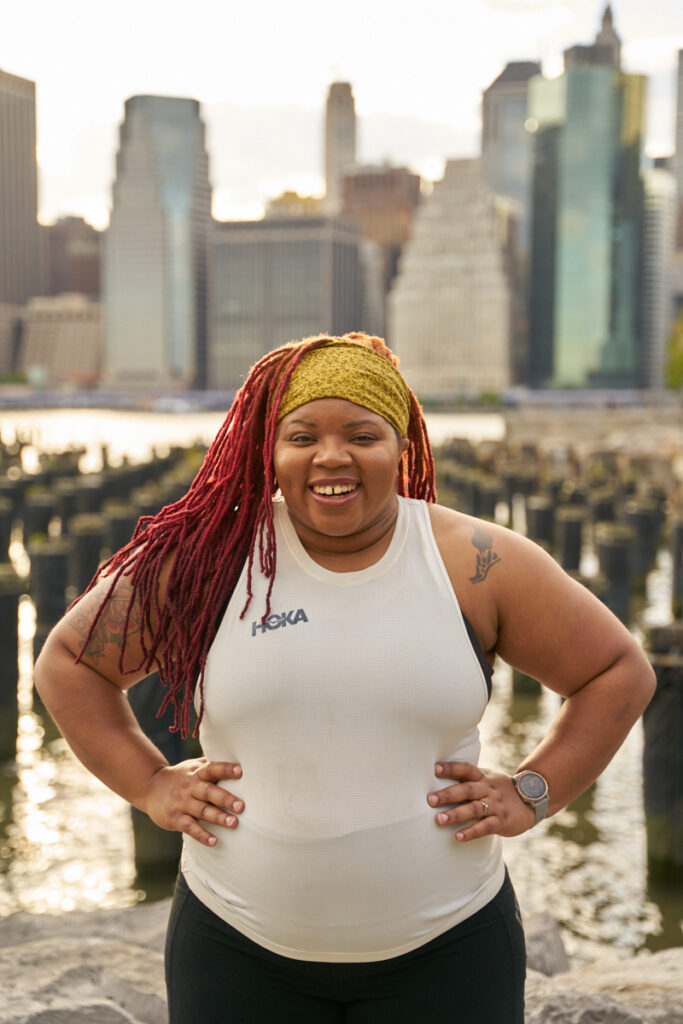
You’ve broken barriers in both the athletic and advocacy spaces. Could you discuss the challenges you’ve faced and the impact of your intersectional identity on your advocacy work?
Breaking barriers in the athletic and advocacy space posed its challenges and triumphs over the years. Being a plus-size Black queer woman with several invisible conditions taught me that it is imperative to speak up for myself. By advocating for myself, it showed me how I could emancipate others along the way. Oftentimes, when I share my hardships with battling conditions like stage four rectovaginal endometriosis, fibroids, and polycystic ovarian syndrome (PCOS) while moving through the fitness space, people weaponize my body size with hopes to reduce or invalidate my experiences. Combating stereotypes and biases of what it means to be a Black woman in the athletic space is already challenging but trying not to fall into the trap of feeling pressured to be the perfect disabled athlete is a weight that I carry daily. I learned how to find harmony with my personal truth, raise awareness about several conditions, and teach people how to respect my rest when I really need it. Utilizing my social media platforms and partnering with organizations that specialize in these specific matters was my start. This year, I took it a step further by being proactive about deliberately putting my story out there with the hope of creating a space for others to feel less alone.
Can you elaborate on the specific challenges faced by Black women with these conditions, and why it’s important to raise awareness about them?
Black women with invisible conditions like PCOS, fibroids, and endometriosis are oftentimes gaslit and not believed by medical professionals and the general public when we express our pain and symptoms. Oftentimes, it takes years to get diagnosed with endometriosis, and it requires medical professionals to fully hear our symptoms and evaluate it similarly to our white counterparts. Oftentimes, reproductive disorders affect more than just our reproductive system. It can disrupt our employment status, and mental health hinders us from our ability to have children and live pain-free lives.
It is important to raise awareness about these conditions because oftentimes, proper funding to research a cure to help communities who are affected by these conditions is distributed equally. Additionally, we cannot overlook the power that resides in community and education. When people are equipped with knowledge, we are able to support each other in an effective way.
How can society, including the fitness and wellness industries, better accommodate individuals with unseen disabilities and chronic illnesses?
Accommodating individuals with unseen disabilities and chronic illnesses requires a blend of education and awareness about these conditions. Instead of leaving room for assumptions, we must create an inclusive environment for people to learn more. This may require utilizing mainstream marketing, expanding where information is generally seen, and building communities for both individuals with chronic illness and their caretakers to talk about these issues.
The fitness and wellness space cannot stop at stating that they are inclusive. Instead, we must weave in periodic training and sensitivity courses regarding these conditions and garner feedback from the communities to improve their present conditions. This may require including accessible bathrooms, ramps, elevators, or placing special events in larger spaces. If invisible conditions have a specific impact on people’s performance, consider providing amenities to aid individuals in pursuing their goals.
Your journey has been marked by boldness and an unapologetic approach to living in your truth. What advice do you have for others who may be struggling to find their voice or face criticism for being their authentic selves?
Standing and speaking in our own truth will sometimes feel scary and isolating, especially if we’re experiencing pushback. Almost any prominent leader that we learned about in history brushed across adversity at least once or twice in their career. I encourage people to lean into their authentic voices and advocate for issues that speak to them. Nobody can advocate for you like you. Oftentimes, we think we have to take this dramatic approach when it comes to advocating for ourselves. Not every person is designed to be on the front lines.
Finding your voice comes from surrounding yourself around thought leaders and building a network of family, friends, and communities who can relate to your core values. Advocating for yourself is not a linear process. Some days will look and feel seamless, while others will force you to construct a strategy on how to talk about a specific topic. By using this muscle regularly, it will start to feel intuitive. You can strengthen this practice by staying informed about specific issues, leaning into your uniqueness, and if you require extra support, seeking professional guidance. In a way, we can all benefit from a neutral party to keep us in a positive mindset, even when things are seemingly well in our lives.
Could you share some memorable moments or experiences from your advocacy work that have had a significant impact on you personally or on the communities you advocate for?
This year, I dedicated my first half of the year to fundraising for a few not-for-profit organizations with conversations centered around invisible conditions. I was able to work with the PCOS Challenge during the Los Angeles Charity Half Marathon. As a collective, we raised $30K towards research, education, and providing help to those facing challenges with polycystic ovarian syndrome. Additionally, I had the opportunity to fundraise, run, and speak as a panelist for The Fibroid Pandemic in July 2023. This amazing organization centers awareness around Black women and nonbinary people who are impacted by fibroids. Additionally. I was able to fundraise for JDRF, the Juvenile Diabetes Research Foundation while running the Pittsburgh 5K and Half Marathon weekend. My son was diagnosed one month before his eighth birthday with type one diabetes. When my husband and I learned about his condition, I remember how isolating, expensive, and lost we felt during that period. Speaking about type one diabetes from the perspective of being a caregiver afforded me the opportunity to connect with fellow runners who have loved ones or are directly impacted by the condition. While in the middle of the tour, one of my long-term partnerships, HOKA, made a generous donation to The Loveland Foundation on my behalf. I am presently partnered with GlaxoSmithKline (GSK) to raise awareness about lupus. As a huge supporter and cheerleader to my sister, I think it’s important to raise awareness about other invisible conditions as well.
Although funding helps, sharing stories on social media and talking with people truly stands out to me. Through speaking up, I’ve received a host of inboxes, letters, and videos from people globally about my advocacy efforts. Most importantly, I love how we’ve created mini-communities through these discussions and fundraisers.
Your online presence, including your website and social media, plays a crucial role in your advocacy efforts. How do you use these platforms to engage with and educate your audience about unseen disabilities and related issues?
Advocacy efforts require a blend of education, openness, and vulnerability. I learned about the power of sharing my personal hardships with the community, which helped me mentally heal, create long-term connections, and empower others who oftentimes felt alone in their own battles. Whether discussing the hardships that I encountered in the fitness space as a multi-marginalized Black woman to living life with multiple chronic conditions, it requires me to tap into my inner strength to share hardships. I understand the importance of sharing joyful elements as well. Oftentimes, when we are met with opposition, it is hard to believe that there’s no growth or hope. I love sharing my highs, lows, and gray areas with my social media community, as well as on my website, about what these challenges and wins look like.
Whenever I have the opportunity, I love amplifying other people’s voices, organizations, and initiatives. Realistically, there are countless people who made it possible for me to speak boldly before I ever entered the sports and wellness space. Acknowledging their progress and electing not to be a gatekeeper about information or other thought leaders from my community helps me speak about invisible conditions and make real progress. I firmly believe that we can make more progress as a collective versus trying to tackle everything on our own.
Looking ahead, what are your future goals and aspirations as an advocate and influencer?
My future goals and aspirations as an advocate and influencer are centered around continuing to explore within and beyond my social media and digital platforms. I want to continue partnering with existing not-for-profits and community organizations that made it their life mission to amplify invisible conditions. I will continue encouraging current and future generations to explore joyful movement on their own terms. Ideally, I want to become a multi-published author over the next several years and speak on several platforms about physical, mental, and emotional health, particularly in the Black community.
Additionally, I am in the beginning stages of founding a not-for-profit centered around empowering people to enter the fitness, food, and wellness space. I know that the opportunities to broaden my reach are out there.I am more than willing to educate, empower, and encourage others to join me in my advocacy work in the fitness, wellness, and mental health space.
How do you hope to continue making a positive impact and raising awareness about unseen disabilities?
The short answer to this is to keep up the conversation on every platform possible. Advocating about unseen disabilities and raising awareness about issues that existed for decades requires exploring every possible opening in a strategic manner. I will continue collaborating with organizations, brands, and individuals who share my passion and commitment to inclusivity, progress, and awareness. I will be a lifelong learner and will be educated whenever I’m called to step into that role while practicing self-care along the way. There will be times when my voice will have to become secondary to the growth of a movement. If this comes by proxy of amplifying someone who has the means to further a conversation, I’m open to that. In addition, I’m open to assisting with educational initiatives, speaking with the media, talking to political leaders about policy changes, and creating campaigns on my own. I hope that my advocacy efforts empower at least one person because that is all it takes to aid many. At one point, I didn’t think my voice mattered until I gave space for my sound to cover a room. Speaking up and continuing the conversation are not an option for me – it’s a calling. I want others to see their own power as well.

Connect with Latoya Snell!
Website: https://www.runningfatchef.com/
Instagram: https://www.instagram.com/iamlshauntay/
Facebook: https://www.facebook.com/latoya.snell
Follow Us On Social Media!

